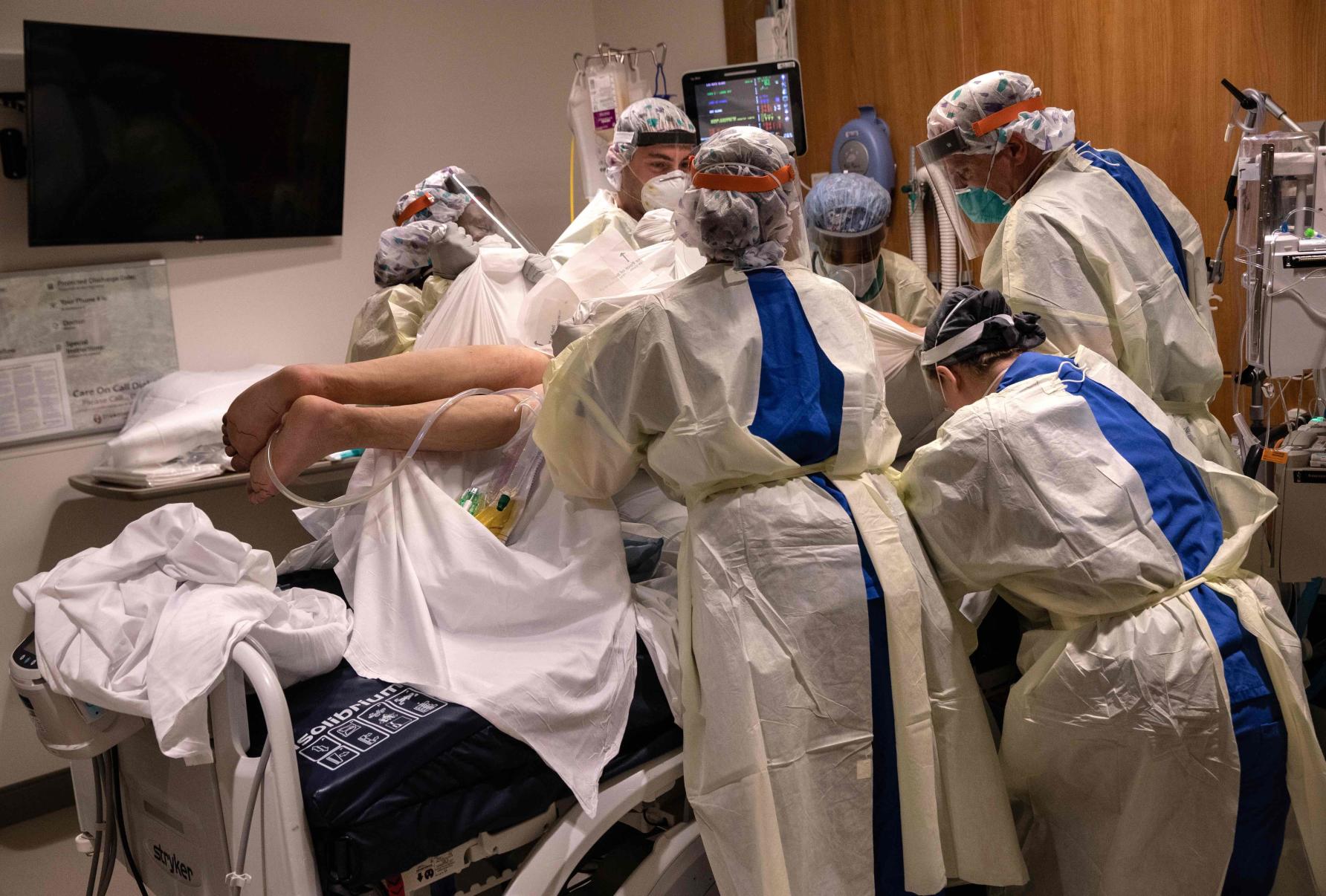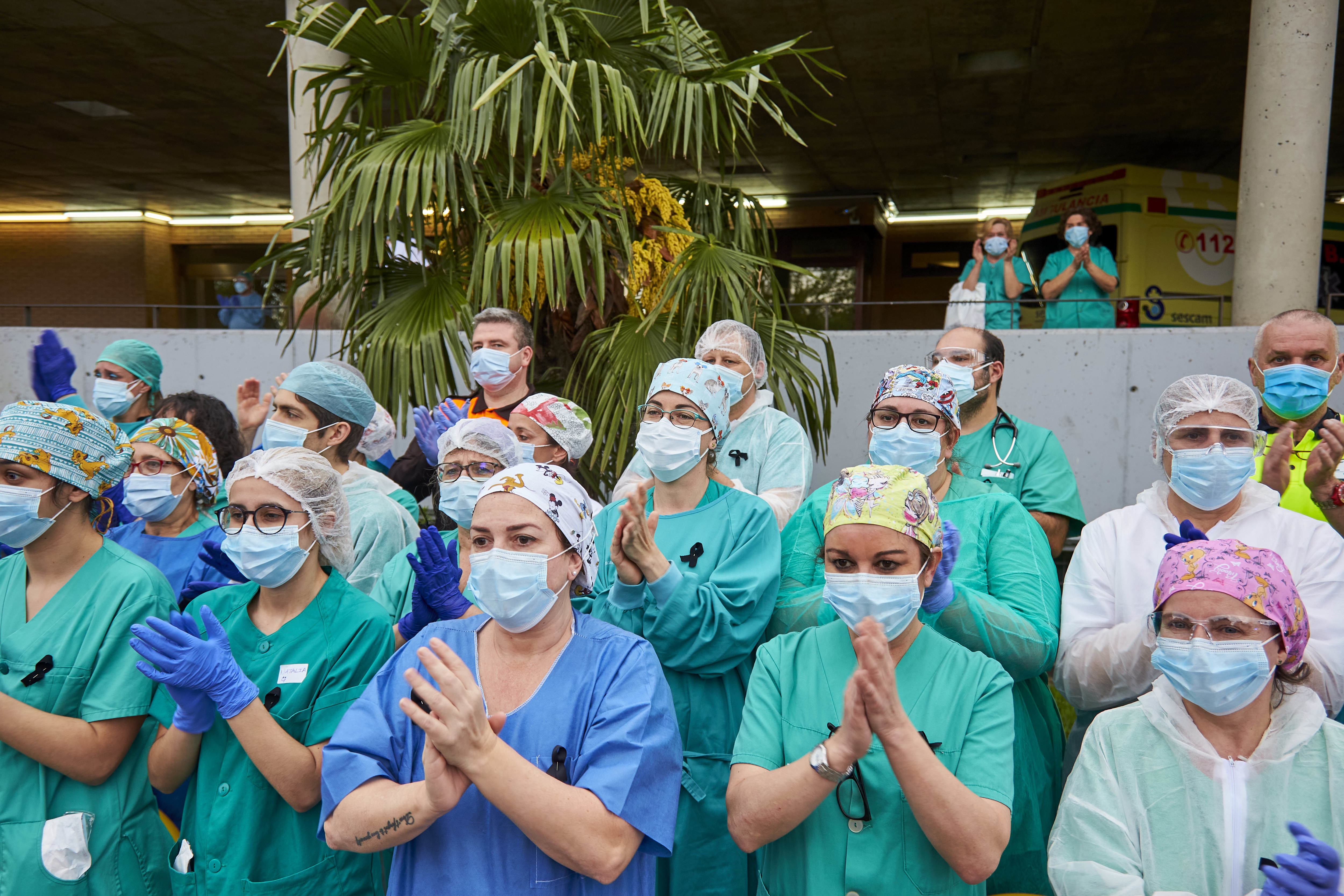
Health & Medicine
Gathering lessons from COVID-19 health workers as they happen

Victoria’s healthcare workers need a comprehensive program of support to help them avoid moral injury and its impacts through the COVID-19 pandemic
Published 8 September 2020
COVID-19 is challenging the wellbeing of Victoria’s healthcare workers.
The lingering infection rate, increasing hospital admissions and deaths, and the critical situation in aged care are creating moral stressors and ethical dilemmas for workers on the front line.

These stressors can lead to psychosocial and spiritual outcomes, with ‘moral injury’ the most severe.
Moral injury is a relatively new concept developed in military settings and applied to soldiers returning from deployment who have been involved in events that transgressed deeply held moral beliefs and values.
This results in harm to their psychological, social and spiritual health that cannot be fully explained by posttraumatic stress disorder (PTSD).

Health & Medicine
Gathering lessons from COVID-19 health workers as they happen
Moral injury can arise where the person does, or fails to do, something that transgresses their deeply held moral beliefs. It can also arise when a person feels betrayed in a high threat situation, or witnesses others behaving in ways they feel are morally wrong.
Healthcare workers are on the frontline of our war with COVID-19, and, like soldiers in war, many will be exposed to traumatic stressors that involve death and threat to life and that could give rise to PTSD.
Phoenix Australia, in collaboration with the Canadian Centre of Excellence on PTSD, has developed a new practical resource, Moral stress amongst healthcare workers during COVID-19: A guide to moral injury, to support healthcare workers and organisations.
It’s a publication that advocates a whole of organisation approach to ensure workers understand moral stressors and moral injury and that healthcare organisations properly address these issues.

The COVID-19 environment brings exposure to a range of situations that can violate a person’s beliefs about what is right and wrong and give rise to moral emotions directed at oneself, like guilt and shame, or at others, like anger and disgust.
Situations where healthcare workers may be conflicted over their own actions could include wanting to work and care for COVID-19 patients while also wanting to protect themselves and their families from harm. Or going into quarantine, knowing the additional stress this will place on overstretched colleagues and in the care of patients.

Health & Medicine
The world needs nurses now more than ever
Other situations may be having to avoid human touch when healthcare workers know how important this can be to ill and frightened patients. It may be denying access to families who want to be with their dying relatives and watching people die alone. Or concerns that healthcare will be compromised for COVID-19 patients, or others needing to use health services.
Some countries have seen extreme circumstances where healthcare workers have had to face decisions about which patients will be given access to life-saving treatment and those who will miss out.
Another type of moral stressor involves behaviour that leads someone to feel betrayed or let down.

In the context of COVID-19, healthcare workers may feel let down by government decisions to manage the pandemic, or by their organisation due to a lack of adequate personal protective equipment, poor infection control training, or lack of responsiveness to the unfolding crisis.
They may also feel let down by members of the community who flout social distancing rules – failing to wear masks or abusing the medical staff trying to help them.
Some degree of moral stress is inevitable in the COVID-19 environment.

Health & Medicine
As a health worker, what’s my risk from COVID-19?
This makes it important for healthcare organisations to take proactive steps to reduce risks and support staff.
Previous research on posttraumatic mental health and what has been learned through the COVID-19 pandemic internationally offer a best-practice approach.
Moral stress amongst healthcare workers during COVID-19: A guide to moral injury highlights that while individual coping styles are important – organisational and social factors can also influence mental health and wellbeing.

A whole of organisation approach that considers the role of organisational policies, managers, leaders and wellbeing support services, and peoples’ own coping resources is needed.
At the organisational level, it’s important to acknowledge the inherent moral stressors for healthcare workers during the COVID-19 pandemic and promote a supportive culture within the workplace with access to a range of support services.
Where possible, specific policies should be implemented to ensure staff are rotated between high and low stress roles and that shift work rosters follow the clock with a cycle of morning to afternoon to evening shifts.

Health & Medicine
How should medical students respond to Covid-19?
In circumstances involving ethical decisions, like the allocation of scarce resources, evidence-based policies should guide these decisions, and they should not be made by frontline workers.
At the team level, there is good evidence that strong leadership and cohesive teams encourage high morale and wellbeing.
Team leaders should be prepared to discuss moral and ethical challenges and help team members make meaning of the circumstances they find themselves in, reinforcing the broader mission and importance of the work they are doing.

They must regularly check on staff wellbeing and arrange further support or counselling if required.
Celebrating successes, however small, should also be encouraged.
At the individual level, healthcare workers should be encouraged to access educational material about moral stressors and moral injury, to use stress reduction activities like relaxation therapy, mindfulness or meditation, and to look after themselves physically by eating well, exercising, maintaining social connections and getting sufficient rest.

Health & Medicine
Dealing with COVID-19 in aged care
Healthcare workers can support each other with shared experiences and seek professional support if they feel distressed or troubled.
In addition, the families of healthcare workers can also be given information so they know the challenges for healthcare workers and how to best support loved ones.
Current best practice psychological approaches emphasise the importance of making meaning of moral stressors and working towards forgiveness of oneself or others.
Depending upon the religious beliefs of a person, chaplains or other spiritual advisors may play an important part in addressing moral injury.

Finally, public support for healthcare workers is critically important.
The military experience has demonstrated the power and enduring legacy of negative public opinion on those returning from war zones. Any negative commentary about healthcare workers and the difficult choices they may be forced to make needs to be avoided.
We hope that government and public expressions of gratitude for the service and dedication of healthcare workers during the COVID-19 pandemic continue – helping to promote a sense of pride in the critical role our healthcare workers have played.
Banner: Shutterstock